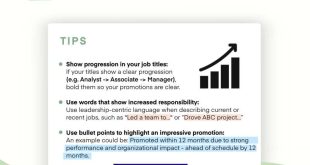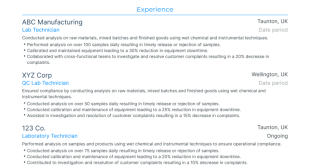How To Become Hipaa Certified – The Health Insurance Portability and Accountability Act (HIPAA) was signed into law in the United States in 1996 to “improve the portability and accountability of health insurance” for employees between workplaces and combat waste, fraud and abuse in health insurance and health care .
HIPAA applies to “Covered Parties” and their business partners. Covered companies are any person providing treatment, payments and surgeries. Business partners are anyone who has access to patient information and/or provides treatment, payment or surgical support.
How To Become Hipaa Certified
In the years that followed, more “rules” and laws were enacted. They set standards for protecting the privacy and security of medical information, and update HIPAA to address scenarios such as the widespread use of electronic and mobile technology that could not have been predicted in 1996.
Hipaa Training Requirements
The HIPAA Privacy and Security Principles are essentially about protecting electronic protected health information (ePHI) so that all health information remains private and confidential.
The HIPAA Privacy Rule sets limits and conditions for the use and disclosure of patient information without specific authorization. The principle also gives patients rights regarding their health data, such as the right to receive a copy of their medical records and request correction.
The HIPAA Security Principle requires appropriate administrative, physical and technical safeguards to ensure the confidentiality, integrity and electronic security of ePHI regardless of where it is stored or electronically transmitted.
In addition, the Economic and Clinical Health Information Technology Act (HITECH) introduces new penalties for HIPAA violators, specifically in relation to ePHI.
Hipaa Compliance Checklist For Healthcare Startups
The 2013 Final Cumulative Rule closed loopholes in existing HIPAA and HITECH regulations, such as specifying the encryption standards to be used to make ePHI useless, undecipherable and unreadable if breached.
HIPAA in the US and GDPR in Europe share the common goal of ensuring the privacy and security of personal information. HIPAA only applies to health information, while GDPR has a broader scope.
However, there are important differences between the laws and it cannot be assumed that if you are HIPAA compliant, you are also GDPR compliant or vice versa. Learn more about GDPR and HIPAA for digital health apps here.
Extra Horizon provides a comprehensive, fully customizable solution for managing, storing and processing sensitive HIPAA data.
Hipaa Compliance Requirements: Everything You Need To Know
Unlike most cloud infrastructure providers, Extra Horizon offers medical facilities as a service that is certified according to ISO 27001:2017 (Information Management System) and ISO 27701:2019 (Privacy Information Management System) among others.
This relieves your company of the burden of regulatory compliance and allows for significantly shorter time-to-market for medical applications.
The line between well-being and health is not always clear. In this blog, Christopher Hex, Product Manager at Extra Horizon, discusses the blurring of the line between wellness and health apps.
The clinical evaluation phase can be a very daunting process, but if you pay close attention to the legal requirements and make sure your SaMD has a good and accurate QMS, you will pass the clinical evaluation phase with flying colors.
Hipaa Compliant Environment Or A Culture Of Compliance?
Developing and releasing software for medical devices is very difficult. For this reason, we have undertaken the task of creating a detailed guide to the IEC 62304 standard, the main purpose of which is to guide the reader through the key concepts of the standard.
In this e-book, we will look at the ISO 13485:2016 Quality Management System standard through some important checkboxes that need to be ticked on the path to certification. HIPAA rules and regulations can be very confusing for healthcare professionals tasked with ensuring HIPAA compliance in their organization.
With that in mind, we’ve put together this simple guide that’s ideal for use in conjunction with the HIPAA Compliance Checklist.
In 2011, HHS published The Seven Essentials of an Effective Compliance Program. We modified it slightly to make it more relevant for HIPAA 2023 compliance.
Hipaa Compliant Messaging For Healthcare Providers
Use the form on this page to request a free copy of the HIPAA Compliance Checklist.
You can also read more about the origins and history of the Seven Elements here, although it is not necessary.
While HIPAA compliance is all about complying with all relevant administrative simplification laws, implementing security policies and reporting standards is essentially an organizational process unrelated to cultivating a culture of compliance. Additionally, the most common violations of HIPAA are due to non-compliance with privacy laws.
However, it is no longer enough to develop policies and procedures that focus solely on acceptable uses and disclosures, the required minimum standard and patients’ rights. Covered entities should ensure that privacy policies and procedures include how to explain to patients what PHI is (and is not), how to verify an individual’s identity, and how requests for privacy are recorded.
How To Become Hipaa Compliant: The Ultimate Guide
Interestingly, HHS’s Office of Inspector General ranked this “guidance” second only to its policies and procedures. This would mean that HIPAA compliance officers are tasked with training employees, monitoring compliance, and enforcing the organization’s sanctions policies. However, working as a Compliance Officer is much more than that.
In most cases, the HIPAA Privacy Officer is the point of contact for members of the public and staff who wish to raise privacy concerns. Security officers are generally more responsible for conducting risk assessments, ensuring that security solutions are set up correctly, and training employees to use the solutions in a compliant manner.
The effectiveness of training provided to employees can mean the difference between meeting compliance requirements and cultivating a culture of compliance. For privacy training to be effective, employees must understand what PHI is, why it needs to be protected, and the consequences of HIPAA violations for patients, employers, and themselves.
Security policy training needs to focus even more on the consequences of cutting corners, bypassing security, and not alerting managers to a data breach for fear of “getting in trouble.” One way to achieve this is to ask employees to enter their personal credentials online into the HIBP database to demonstrate the importance of unique, complex passwords.
How Long Does A Hipaa Certification Last?
While policy making and training must be top-down, it is important that all HIPAA compliance communication channels are also bottom-up, not only for raising compliance concerns or reporting HIPAA violations, but also for providing feedback to about what works and what doesn’t on the ground floor and what new challenges do frontline workers face?
For this reason, if resources permit, it may be important to have a compliance team composed of team members who have worked or have working knowledge of different departments. For example, a compliance team composed entirely of lawyers and IT managers may not realize how difficult it is to protect PHI’s privacy from a bereaved family following a recent loss.
Most bad compliance practices stem from good intentions, such as “getting the job done” or providing a good service to a patient’s family. If minor violations are still allowed, poor compliance practices can evolve into a culture of non-compliance. For this reason, it is important to identify and correct poor compliance practices at an early stage.
While it’s important to track compliance at the floor level, it’s also important not to lose sight of compliance at a higher level. Busy executives and senior managers may also be guilty of cutting corners on compliance or ignoring non-compliance activities because they don’t have time to “fix the problem” – when in fact not taking action means compliance management has failed .
Hipaa Compliance Checklist 3 Sure Ways To Show Adherence
Sanctions policies can often be overwhelming documents that threaten any disciplinary action for non-compliance, from warnings and suspensions to contract termination and loss of license. Some even provide maximum federal penalties for violating Section 1177 of the Social Security Code (up to 10 years in prison and a fine of up to $250,000).
While the law may require these sanctions to be included in a sanctions policy, focusing on them is not necessarily the best way to foster a culture of compliance. The threat of additional training is often enough to create and maintain a compliant workforce – especially when entire teams must attend refresher training due to one person’s non-compliance!
One of the keys to maintaining a culture of compliance is to respond to inquiries, issues, complaints, breach reports, and data breaches as quickly as possible. Responding quickly to all kinds of communications demonstrates a commitment to compliance and a willingness to ensure that the state of compliance is maintained once a compliant workforce is reached.
Responding to inquiries, issues, complaints, etc. is normally the responsibility of Compliance Managers (or teams), but this can overwhelm Compliance staff. As such, managers and officers may need to assume some responsibility for monitoring compliance and responding to communications from staff or patients.
Hippa Compliant Cloud Storage Guidelines
Book a free risk assessment required for HIPAA compliance. Reviewing the risk assessment is also part of your responsibilities



